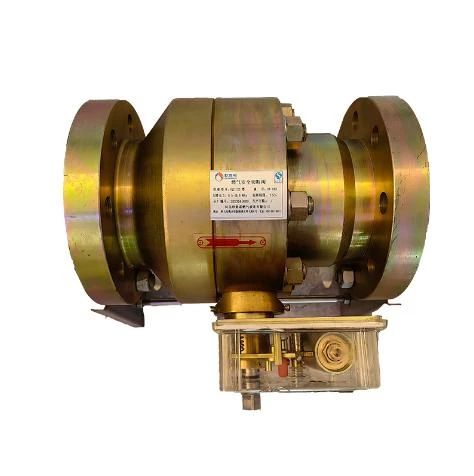
10 月 . 15, 2024 10:59
Back to list
Electric Valve Control for Efficient Automation and System Performance Enhancement
Understanding Electric Valves The Key to Efficient Automation
Electric valves, also known as electric actuated valves, play a crucial role in modern automation systems. These devices are essential in various industries, including oil and gas, water treatment, manufacturing, and HVAC (heating, ventilation, and air conditioning). Their primary function is to control the flow of liquids or gases through pipes and ducting systems, ensuring that processes run smoothly and efficiently.
Working Principle of Electric Valves
Electric valves operate based on an electric actuator that opens or closes the valve by transforming electrical energy into mechanical energy. When an electric signal is sent to the actuator, it either moves a stem or rotates a disk, depending on the type of valve. This action either allows or restricts the flow of fluids. The process can be further automated with the integration of sensors and controllers, allowing for real-time monitoring and adjustments based on system demands.
Types of Electric Valves
There are various types of electric valves, each designed for specific applications. The most common types include
1. Ball Valves These valves have a spherical disc that controls flow. They are known for their durability and ability to handle high-pressure applications. 2. Butterfly Valves Featuring a rotating disk, these valves are compact and suitable for larger pipes. They provide quick shut-off capabilities and are often used in water and wastewater applications.
3. Globe Valves Primarily used for throttling flow, globe valves have a spherical body and offer excellent flow regulation.
4. Check Valves Preventing backflow, check valves allow fluid to move in one direction only, ensuring system safety and efficiency.
.
Benefits of Electric Valves
صمام كهربائي

The adoption of electric valves in industrial processes comes with a range of advantages
- Precision Control Electric valves offer accurate flow control, leading to enhanced process efficiency and stability.
- Automation Capability They can be easily integrated with automated systems, reducing the need for manual intervention and improving operational safety.
- Energy Efficiency Many electric valves consume less energy compared to their pneumatic or hydraulic counterparts, making them an environmentally friendly option.
- Maintenance Simplicity Electric valves generally require less maintenance than mechanical counterparts, leading to reduced downtime and lower operational costs.
- Versatility These valves can be used in a variety of applications, from simple on-off systems to complex multi-valve processes, making them extremely versatile.
Applications of Electric Valves
Electric valves find applications across numerous sectors. In the oil and gas industry, they regulate flow rates during extraction and refining processes. In wastewater treatment, they control the flow of water through various treatment stages. Moreover, HVAC systems leverage electric valves to maintain optimal temperature and airflow, enhancing energy efficiency.
Conclusion
In summary, electric valves serve as a cornerstone of modern automation technology. They ensure the precise control of fluid flow in myriad applications across several industries. As industries continue to evolve toward greater efficiency and sustainability, the role of electric valves will undoubtedly become even more significant. With their ability to integrate seamlessly into automated systems, they provide the reliability and performance necessary for today’s demanding operational environments. Understanding the function and benefits of electric valves is essential for anyone involved in process control and automation.
Latest news
-
Unlocking The Quality Gas Pressure ReducersNewsNov.01,2024
-
The Role of Gas Pressure Reducing StationsNewsNov.01,2024
-
The Importance and Functionality of Safety Relief ValvesNewsNov.01,2024
-
The Essential Role of Safety Valves in Natural Gas ApplicationsNewsNov.01,2024
-
The Essential Role of Gas Pressure RegulatorsNewsNov.01,2024
-
Enhance Your Premium Gas FiltersNewsNov.01,2024

